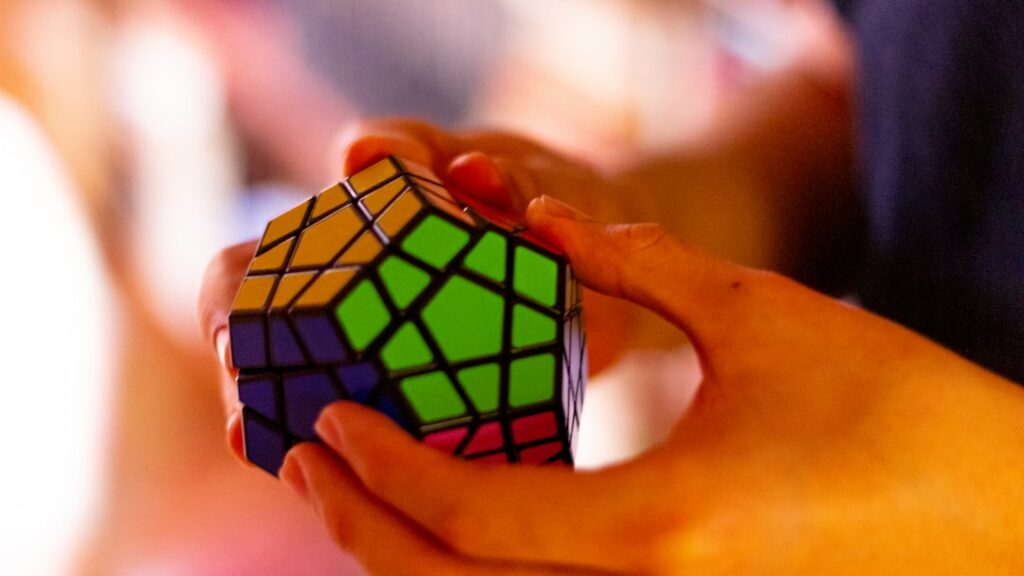Cognitive rehabilitation is a therapeutic approach that aims to improve brain function and cognitive abilities in individuals who have experienced cognitive decline or impairment. It involves a variety of techniques and interventions that target specific cognitive domains such as memory, attention, executive functioning, language skills, and emotional regulation. The ultimate goal of cognitive rehabilitation is to enhance an individual’s overall cognitive functioning and quality of life.
The importance of cognitive rehabilitation cannot be overstated. When individuals experience cognitive decline or impairment due to factors such as aging, brain injury, or neurological disorders, it can significantly impact their daily functioning and independence. Cognitive rehabilitation provides a structured and evidence-based approach to help individuals regain lost cognitive abilities and improve their overall brain function.
Key Takeaways
- Cognitive rehabilitation is a process of restoring cognitive abilities lost due to injury or illness.
- Brain games are a type of cognitive rehabilitation that involves playing games designed to improve cognitive abilities.
- Brain games can improve memory, attention, executive functioning, language skills, emotional regulation, and neuroplasticity.
- Brain games are effective in cognitive rehabilitation and can help individuals regain lost cognitive abilities.
- The future of brain games in cognitive rehabilitation is promising, as technology continues to advance and new games are developed.
What are Brain Games?
Brain games are a type of cognitive training that involves engaging in various mental exercises and activities designed to stimulate and challenge the brain. These games are specifically designed to target different cognitive domains and improve specific cognitive skills such as memory, attention, problem-solving, and decision-making.
There are several types of brain games available, including puzzles, memory games, word games, logic games, and attention-training exercises. These games can be played on various platforms such as computer programs, mobile apps, or even traditional pen-and-paper formats.
Examples of popular brain games include Sudoku, crossword puzzles, chess, memory matching games, and brain training apps like Lumosity and Elevate. These games are designed to be enjoyable and engaging while also providing a mental workout for the brain.
The Benefits of Brain Games in Cognitive Rehabilitation
Brain games have been shown to have several benefits in the context of cognitive rehabilitation. Firstly, they provide targeted stimulation to specific cognitive domains, helping to improve brain function in those areas. By engaging in regular brain games, individuals can strengthen their cognitive abilities and enhance their overall cognitive functioning.
Secondly, brain games can help individuals regain lost cognitive abilities by providing a structured and systematic approach to cognitive rehabilitation. These games often involve progressive levels of difficulty, allowing individuals to gradually challenge themselves and improve their cognitive skills over time.
Furthermore, brain games can also have a positive impact on other aspects of an individual’s life. Improved cognitive function can lead to better performance in daily activities, increased independence, and enhanced overall quality of life.
How Brain Games Help in Improving Memory and Attention
Memory and attention are two crucial cognitive domains that can be significantly impacted by cognitive decline or impairment. Brain games can play a vital role in improving memory and attention by providing targeted exercises and activities that challenge these cognitive skills.
Memory games, such as memory matching games or word recall exercises, can help individuals improve their ability to encode, store, and retrieve information. These games require individuals to actively engage their memory processes, which can lead to improved memory function over time.
Attention-training exercises, on the other hand, can help individuals improve their ability to sustain attention, shift attention, and ignore distractions. These exercises often involve tasks that require individuals to focus on specific stimuli while ignoring irrelevant information. By practicing these attention-training exercises regularly, individuals can enhance their attentional abilities and improve their overall attention span.
Examples of brain games that improve memory and attention include the «Dual N-Back» task, which challenges working memory and attention simultaneously, and the «Stroop Test,» which requires individuals to inhibit automatic responses and focus on relevant information.
The Role of Brain Games in Enhancing Executive Functioning
Executive functioning refers to a set of cognitive processes that are responsible for goal-directed behavior, problem-solving, decision-making, and self-regulation. Brain games can play a crucial role in enhancing executive functioning by providing exercises and activities that target these cognitive processes.
Executive functioning games often involve tasks that require individuals to plan, organize, strategize, and monitor their own behavior. These games can help individuals improve their ability to set goals, make decisions, solve problems, and regulate their emotions and impulses.
Examples of brain games that enhance executive functioning include strategy games like chess or Sudoku, which require individuals to plan and strategize their moves. Additionally, games that involve multitasking or task-switching, such as the «Trail Making Test,» can help individuals improve their ability to shift attention and switch between different tasks.
Brain Games and Language Skills

Language skills are another important cognitive domain that can be improved through brain games. Language games and exercises can help individuals enhance their vocabulary, grammar, reading comprehension, and verbal fluency.
Word games, such as crossword puzzles or word association exercises, can help individuals expand their vocabulary and improve their word retrieval abilities. These games require individuals to actively engage with language and think critically about word meanings and relationships.
Reading comprehension exercises, on the other hand, can help individuals improve their ability to understand and interpret written information. These exercises often involve reading passages or articles and answering questions based on the content.
Furthermore, brain games that focus on verbal fluency can help individuals improve their ability to generate words or ideas quickly. These games often involve tasks that require individuals to come up with as many words as possible within a specific category or time limit.
Brain Games and Emotional Regulation
Emotional regulation refers to the ability to manage and control one’s emotions effectively. Brain games can play a role in improving emotional regulation by providing exercises and activities that target emotional processing and regulation.
Emotional regulation games often involve tasks that require individuals to identify and label emotions, regulate emotional responses, and develop coping strategies for managing stress or negative emotions.
For example, a game called «Emotion Match» requires individuals to match facial expressions with corresponding emotions. This game helps individuals improve their ability to recognize and understand emotions in themselves and others.
Another example is a game called «Thought Challenger,» which helps individuals challenge and reframe negative or unhelpful thoughts. This game can help individuals develop more positive and adaptive thinking patterns, leading to improved emotional regulation.
Brain Games and Neuroplasticity
Neuroplasticity refers to the brain’s ability to change and adapt in response to experiences and environmental stimuli. Brain games can promote neuroplasticity by providing novel and challenging experiences that stimulate the brain and promote the formation of new neural connections.
When individuals engage in brain games, they are actively exercising their cognitive abilities and challenging their brain to adapt and improve. This process of cognitive stimulation can lead to structural and functional changes in the brain, ultimately enhancing overall cognitive functioning.
Examples of brain games that promote neuroplasticity include puzzle games like Sudoku or jigsaw puzzles, which require individuals to think critically and problem-solve. Additionally, games that involve learning new skills or acquiring new knowledge, such as language learning apps or music training programs, can also promote neuroplasticity.
The Effectiveness of Brain Games in Cognitive Rehabilitation
Numerous research studies have been conducted to evaluate the effectiveness of brain games in cognitive rehabilitation. Overall, the findings suggest that brain games can have a positive impact on cognitive function and can be an effective tool for cognitive rehabilitation.
For example, a study published in the Journal of the American Geriatrics Society found that older adults who engaged in brain training exercises showed improvements in memory, attention, and processing speed compared to those who did not engage in such exercises.
Another study published in the Journal of Experimental Psychology: General found that individuals who played a strategy-based video game showed improvements in working memory and cognitive flexibility compared to those who played a non-strategy-based game.
Furthermore, there are numerous success stories of individuals who have benefited from incorporating brain games into their daily routine. These individuals have reported improvements in memory, attention, problem-solving, and overall cognitive functioning after regularly engaging in brain games.
The Future of Brain Games in Cognitive Rehabilitation
The potential of brain games in improving brain function and cognitive abilities is vast. As our understanding of the brain and cognitive processes continues to evolve, so too will the development and refinement of brain games.
The future of brain games in cognitive rehabilitation holds great promise. With advancements in technology, brain games can become more personalized and adaptive, tailoring the exercises and activities to the specific needs and abilities of each individual.
Encouraging individuals to incorporate brain games into their daily routine can have a significant impact on their cognitive health and overall well-being. By engaging in regular brain games, individuals can take an active role in improving their brain function and enhancing their cognitive abilities.
If you’re interested in improving your memory and looking for some unconventional methods to achieve it, you should definitely check out this article on Intelligence Snacks. It provides some unique ways to enhance your memory that you might not have considered before. From using unusual techniques to memorize information faster to incorporating brain-boosting foods into your diet, this article offers 13 tips and tricks that can help you improve your memory. So, if you’re ready to take your cognitive abilities to the next level, click here to read the full article: https://intelligencesnhacks.com/13-consejos-y-trucos-para-memorizar-mas-rapido-y-recordar-lo-aprendido/.
FAQs
What are brain games?
Brain games are activities or exercises that are designed to stimulate and challenge the brain. They are often used to improve cognitive function, memory, attention, and other mental abilities.
What is cognitive rehabilitation?
Cognitive rehabilitation is a type of therapy that aims to improve cognitive function in individuals who have experienced brain injury or other neurological conditions. It involves a range of techniques and strategies, including brain games, to help individuals regain lost cognitive abilities.
How do brain games help with cognitive rehabilitation?
Brain games can help with cognitive rehabilitation by providing a structured and engaging way to challenge the brain and improve cognitive function. They can help individuals improve their memory, attention, problem-solving skills, and other mental abilities.
What types of brain games are used in cognitive rehabilitation?
There are many different types of brain games that can be used in cognitive rehabilitation, including puzzles, memory games, attention training exercises, and problem-solving activities. These games can be tailored to the specific needs and abilities of each individual.
Are brain games effective for cognitive rehabilitation?
Research has shown that brain games can be effective for improving cognitive function in individuals who have experienced brain injury or other neurological conditions. However, the effectiveness of brain games may vary depending on the individual and the specific type of game being used.
Can brain games be used for other purposes besides cognitive rehabilitation?
Yes, brain games can be used for a variety of purposes besides cognitive rehabilitation. They are often used as a way to improve mental agility and prevent cognitive decline in healthy individuals. They can also be used as a fun and engaging way to pass the time and challenge the brain.






